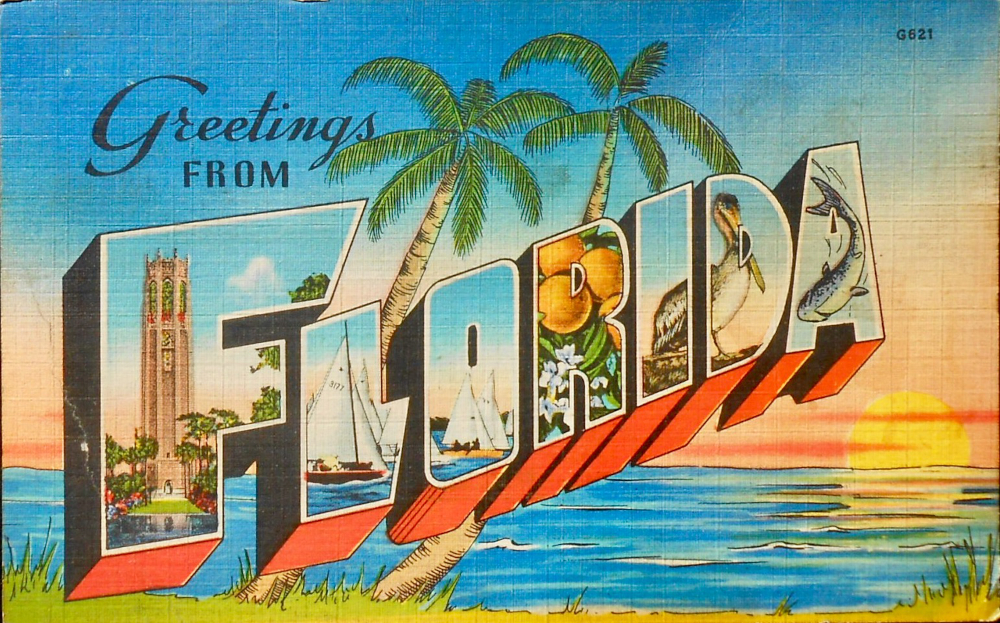Backed by producers of psychoactive hemp products, Florida Gov. Ron DeSantis has effectively secured a two-track market for intoxicating cannabis where only hemp-derived intoxicants and medical marijuana are legal, with recreational weed shut out by voters.
After a costly ballot measure battle, Amendment 3, which sought to legalize recreational marijuana, fell short of the 60% approval threshold in yesterday’s general election. The measure received about 56% support; 60% was required for passage.
The Amendment to the state constitution would have allowed adults 21 and older to possess up to three ounces of marijuana or five grams in concentrated form. Many observers were surprised by the amendment’s failure, as some pre-election polling had indicated majority support by a thin margin.
Not smart and safe
Trulieve Cannabis Corp., Florida’s largest medical marijuana operator, led the push for legalization, contributing most of the more than $150 million raised by Smart & Safe Florida, the organization that backed the initiative. DeSantis saw Trulieve’s support of Amendment 3 as overreach after he had welcomed the company in as a big player in Florida’s legal medical marijuana market.
The state invested substantial resources in its opposition campaign. DeSantis was criticized for using state funds for anti-Amendment 3 advertising and for staging press conferences on the issue.
The governor found his position conveniently bolstered by support from makers of the synthetic hemp products, which are unregulated and are both in violation of state rules for THC levels and, in some cases, tainted with pesticides. Florida and federal consumer safety agencies have repeatedly issued warnings over the products.
While the measure’s defeat keeps Trulieve’s ambitions in check, it appears to open the door wide – at least temporarily – for intoxicating hemp producers, who can offer their products as an alternative to medical marijuana.
Under a 2023 law signed by DeSantis, intoxicating hemp products, such as those containing delta-8 THC and other synthetic substances, may be sold in convenience stores, gas stations, and general retail outlets, as long as they meet state guidelines on age verification, labeling and packaging. The products may be sold to individuals aged 21 and over, and marketing to children is prohibited.
Retailers can sell these products alongside other goods without needing a dispensary or specific cannabis license, as is required for medical marijuana.
A cynical alliance
The alliance between DeSantis and synthetic hemp producers underscores a cynical political maneuver. On the one hand, the governor aligned with companies like Trulieve to streamline the medical market, while on the other, he’s aiding unregulated hemp producers whose products are widely accessible and relatively inexpensive. By supporting these intoxicating hemp products, DeSantis has created a de facto recreational cannabis market that bypasses the stricter regulatory and licensing frameworks typically applied to cannabis.
So Florida has now established itself as a distant outlier in how it is now dealing with intoxicating hemp products. Many states have banned products containing the substances outright, while others have put them under laws and rules governing recreational marijuana. In states where recreational marijuana is already legal, weed stakeholders have fought against the hemp intoxicants, arguing they represent unfair competition because they are not subject to licensing fees and regulations.
Most of the intoxicating hemp compounds at issue are made by putting hemp-derived CBD through a synthetic process to produce the highly concentrated psychoactive substances. They produce effects similar to those produced by delta-9 THC, the common intoxicant found in marijuana.
Products containing the substances emerged after the 2018 Farm Bill legalized industrial hemp and its downstream products across the U.S. The federal law created a loophole by not accounting for synthetically produced psychoactive products that can be made from hemp flowers.
Crowing, conceding
In a social media post, Vote No on 3, the campaign opposing recreational marijuana, crowed, “Even after spending over $150 million — the most in any drug legalization effort in American history — the people of Florida saw through Amendment 3’s web of deception and defeated this corporate power grab.”
As if ignoring the Amendment 3 defeat, Smart & Safe Florida said Tuesday night, “While the results of Amendment 3 did not clear the 60% threshold, we are eager to work with the governor and legislative leaders who agree with us on decriminalizing recreational marijuana for adults, addressing public consumption, focusing on child safety, and expanding access to safe marijuana through home grow,” the group said.
Despite Tuesday’s vote in Florida, the likelihood that federal law will eventually impact Florida’s legal market for intoxicating hemp products is considerable, as both Congress and federal agencies are increasingly scrutinizing the legal gray areas surrounding synthetic hemp cannabinoids like delta-8 THC and other derivatives. Any changes in federal regulations would likely significantly affect the sale, distribution, and safety requirements for these products.
What feds could do
If the FDA enacts new regulations on hemp-derived cannabinoids, particularly synthetic intoxicants like delta-8 THC, Florida’s market for these products could face major restrictions or bans. Alongside, the DEA’s potential reclassification of these cannabinoids as Schedule I controlled substances could force Florida to either ban or heavily regulate them.
Congress is also considering reforms to the 2018 Farm Bill to set THC limits on all cannabinoids, closing loopholes that currently allow synthetic intoxicants, which would redefine “hemp” and potentially eliminate Florida’s legal market for these compounds.
Additionally, federal product safety standards, labeling mandates, and possible restrictions on interstate commerce would further increase compliance costs for Florida producers, limit product variety, and reshape the state’s hemp industry.

